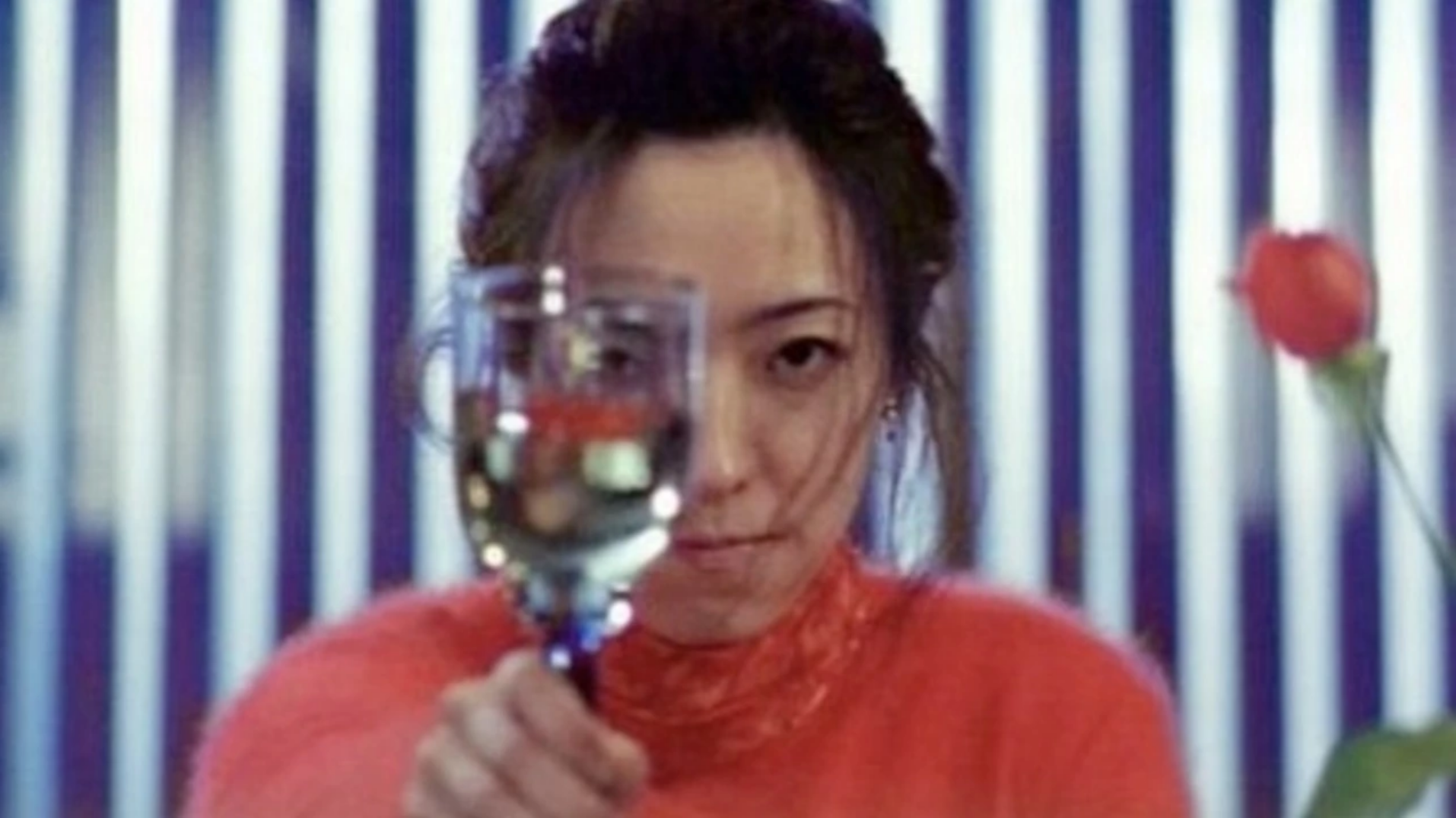“I even got divorced because of my cooking.”
Song-hui (301)
“I wish to disappear.”
Yun-hui (302)
301/302 (삼공일 삼공이) 1995
In a gripping mystery directed by Park Chul-soo, Yun-hui (portrayed by Hwang Shin-hye) mysteriously vanishes leaving apartment 302 devoid of life. Her neighbour, Song-hui, played by Bang Eun-jin in a role which saw her pick up 3 Best Actress awards, resides just across the hall in apartment 301 and becomes embroiled in unravelling the secrets of Yun-hui’s fate. This compelling narrative is based on the poem ‘The Cook and the Anorexic’ by Jang Jung-ill and was later remade as a Canadian film titled ‘Compulsion,’ released in 2013.
Through a series of captivating flashbacks narrated by Song-hui, both the detective and the audience are drawn into the complex pasts of the two women. Set within the confines of Apartment 301, which doubles as an interrogation room, Song-hui intriguingly takes control of the situation. Her assertiveness is palpable as she even instructs the detective to leave, building tension as we edge closer to the pivotal revelation about Yun-hui’s fate. Director Park Chul-soo masterfully toys with audience expectations by skillfully revealing information ahead of time and then cleverly manipulating the timing of the ultimate payoffs.
The film’s cinematography and set design play a vital role in crafting its unique atmosphere, blending mood with an unsettling surrealism. Both apartments appear more as set designs than homes, serving as a mirror to their inhabitants’ personalities. Apartment 302, home to Yun-hui, is characterized by an overwhelming collection of books that soar from floor to ceiling, casting a sense of solitude in its minimalistic colour palette of whites and beiges. In stark contrast, Apartment 301 is meticulously curated, with the kitchen designed as a striking central hub, drenched in ominous red hues that hint at underlying tensions. The evolution of the characters’ clothing further emphasizes their emotional states; for instance, Song-hui transitions from vibrant, colourful attire to drab, plain outfits when she embarks on a diet, conveying her spiralling sense of misery and emptiness.
The film delves deeply into the poignant theme of loneliness. At first, Yun-hui is reclusive and hesitant to engage with her outgoing neighbour, Song-hui. Her past traumas have changed her whole demeanour and life. Although Song-hui exhibits a more vivacious personality, she is driven by a desperate need for validation from others, manifesting predominantly through her culinary endeavours. The stark connection between body and mind reverberates throughout the narrative, with a particular focus on body image and the profound impact it has on mental health.
Presented in a visually stunning and thought-provoking manner, the film holds its intrigue from start to finish. However, some of the close-up montages of food, while strikingly shot, may feel drawn out at times. Both Bang Eun-jin and Hwang Shin-hye deliver remarkable performances that are sure to leave a lasting impression, and I am eager to explore more of their work, as well as other films directed by Park Chul-soo.
